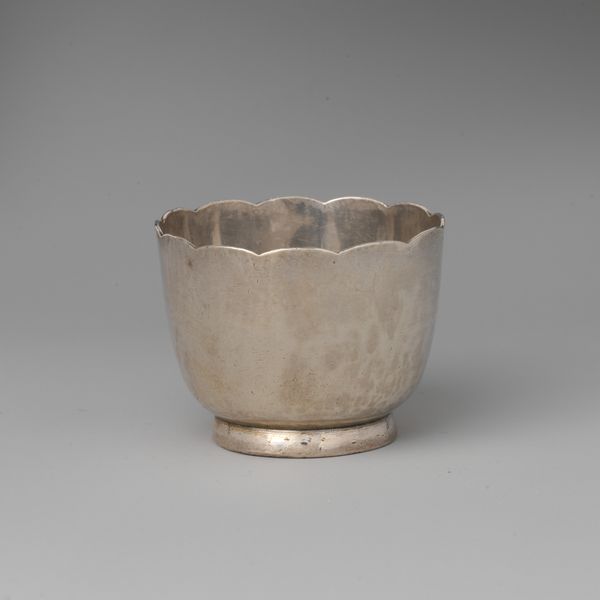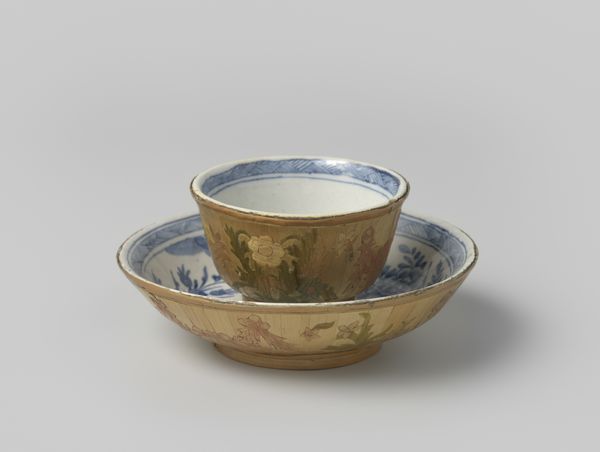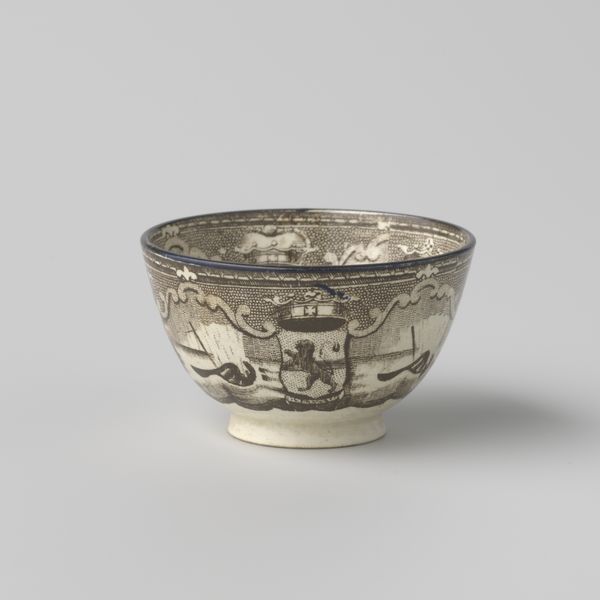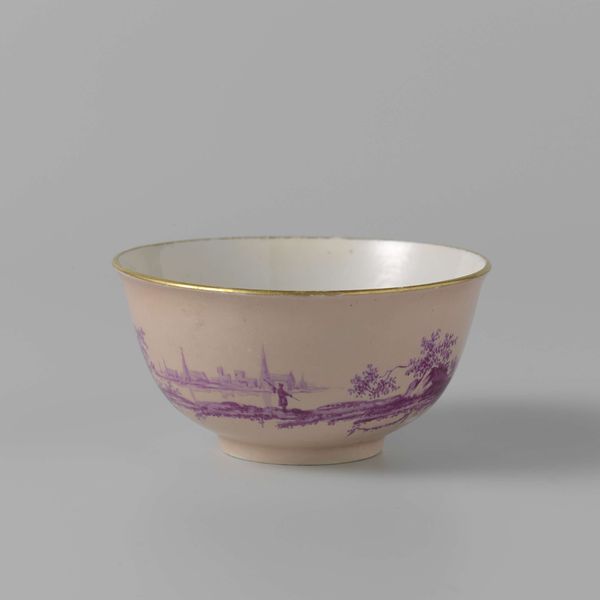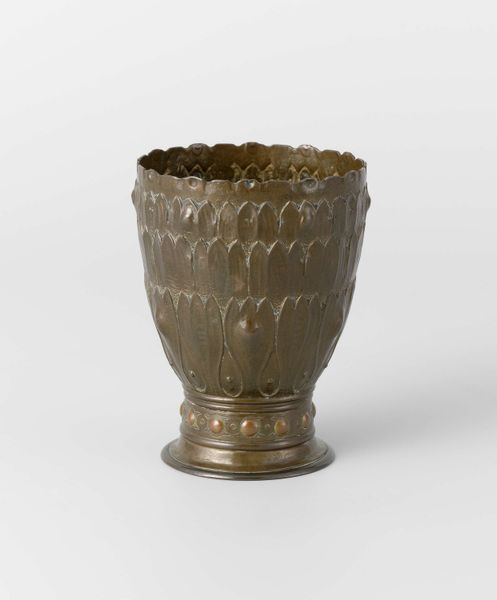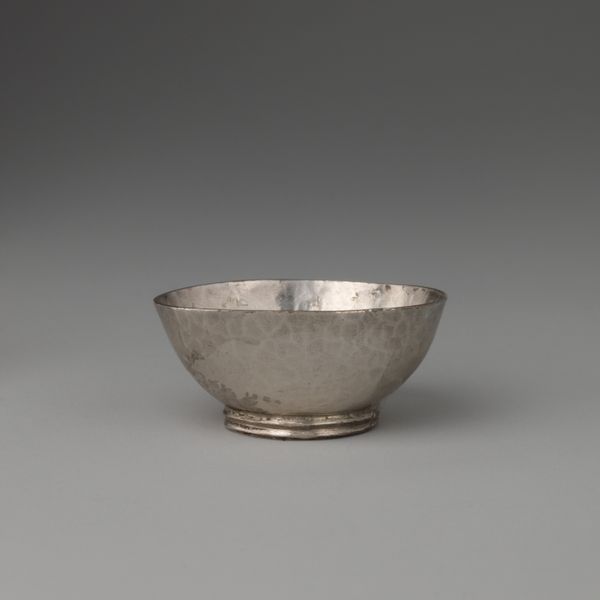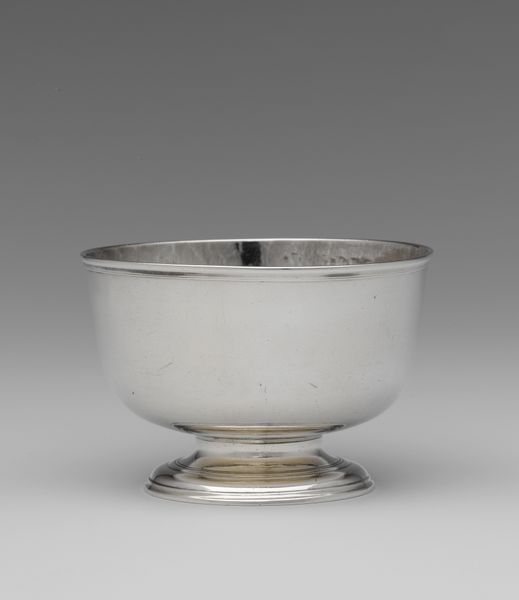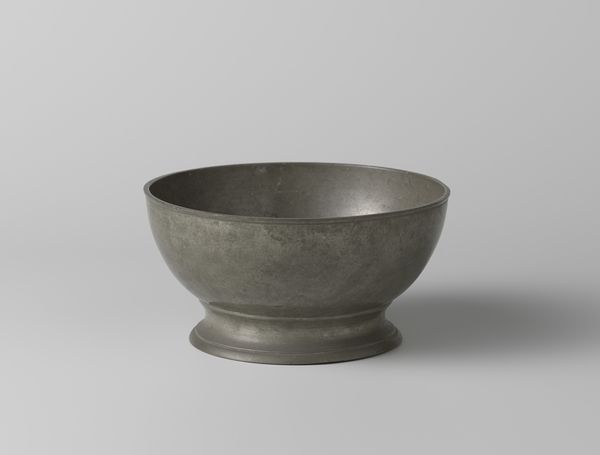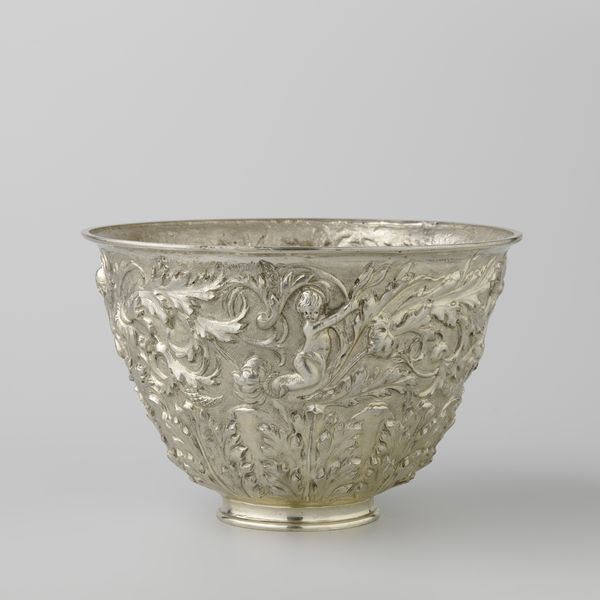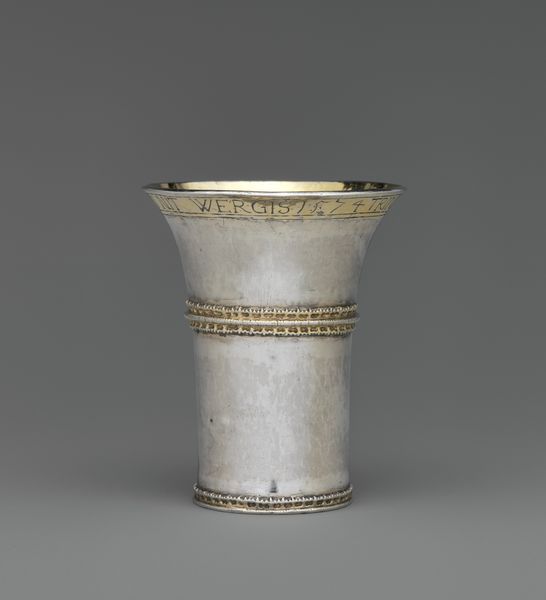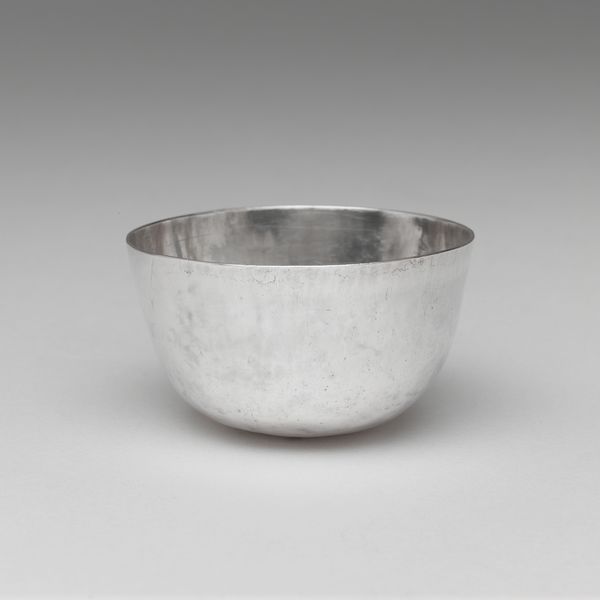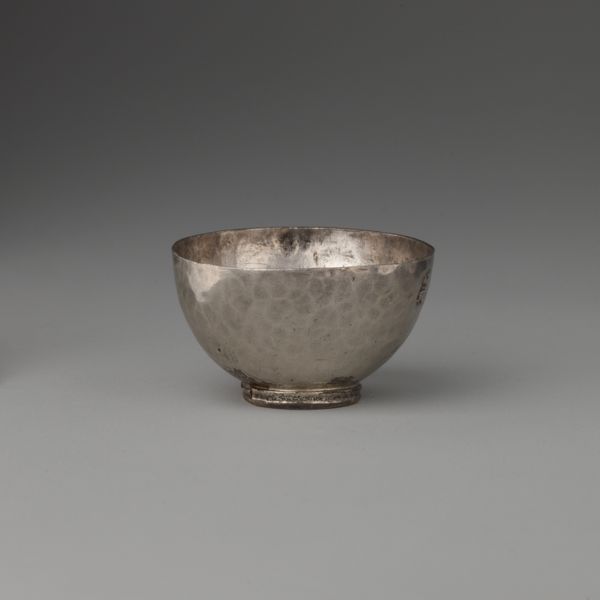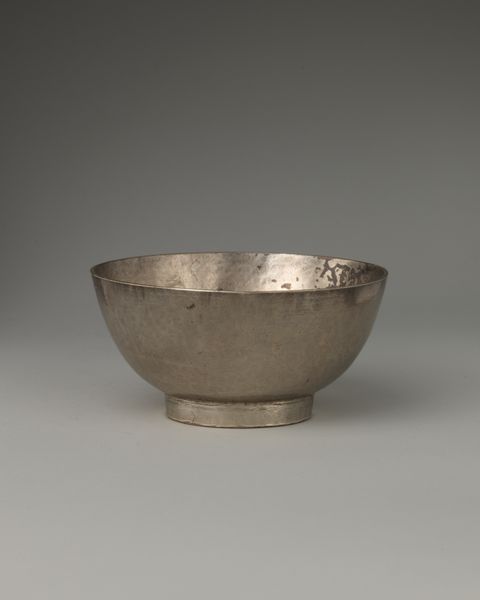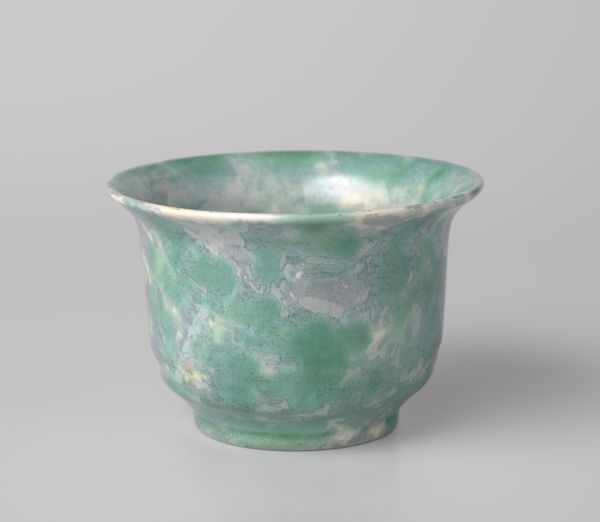
ceramic, earthenware
#
asian-art
#
ceramic
#
earthenware
#
ceramic
#
decorative-art
Dimensions: height 4.3 cm, diameter 7.3 cm
Copyright: Rijks Museum: Open Domain
This is a small cup, made of faience and straw, decorated with flowers, by De Dissel. We don’t know when it was made. Cups like this tell us a story of cultural exchange and economic ambition. Faience, a type of tin-glazed earthenware, was produced in imitation of Chinese porcelain, which was highly sought after in Europe. Notice the floral decoration and blue rim. These are visual cues, attempting to replicate the exotic appeal of imported goods. But why imitate? The answer lies in the rise of mercantile capitalism. European manufacturers sought to capture a share of the lucrative market for luxury goods. This cup, therefore, speaks to a broader history of trade, colonialism, and the desire to emulate the styles of distant lands. To truly understand its place in history, we might turn to trade records, museum collections, and studies of decorative arts. These sources help us see how objects like this cup participated in a complex web of social and economic relations.
Comments
No comments
Be the first to comment and join the conversation on the ultimate creative platform.
